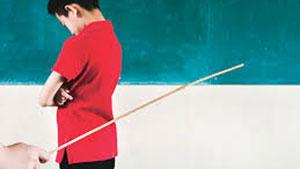30 Apr 2024 - {{hitsCtrl.values.hits}}
 Colombo, April 30 (Daily Mirror) - The government today approved the amendment to the Penal Code and the Criminal Procedure Code for the banning of all corporal or physical punishments in all sectors.
Colombo, April 30 (Daily Mirror) - The government today approved the amendment to the Penal Code and the Criminal Procedure Code for the banning of all corporal or physical punishments in all sectors.
A recent study conducted in relation to the Sri Lankan context by the United Nations' Committee on Child Rights revealed that a large number of children are prone to physical punishments, abuses and violence due to the lack of legal provisions prevailing at home, within remedial protection backgrounds, within institutions for penalty order implementation, and in schools.
A Supreme Court decision relevant to a fundamental rights petition filed by a student who experienced hearing discrepancies following an assault by a teacher has held the relevant teacher and the government responsible for violating the 11th statute of the Constitution.
It has been scientifically proven that a child may be physically or mentally impacted, both mentally and physically in the long run by such corporal or physical punishments.
Therefore, legal amendments should be introduced with immediate effect, covering any act falling under the cruel and/or daring physical and/or non-physical punishment category.
Accordingly, the Cabinet granted approval to the joint resolution by the President along with the Justice, Prison Affairs and Constitutional Reforms Minister in order to take the necessary measures to amend both the Penal Code and the Criminal Procedure Code, including provisions for banning all corporal or physical punishments in all sectors.
The civil, political, economic, social and cultural rights of a child have been emphasized by the Child Rights Convention, to which Sri Lanka is also a partner.
Statute 19(1) of the Child Rights Convention emphasizes that the government stakeholders shall take all appropriate legal, administrative and educational measures in order to protect a child under the protection of either parents, legitimate guardians or another person from causing all types of corporal, physical or mental violence, injuries or abuse, discrimination or negligence or disregard, differently treating or exploitation etc., including sexual exploitation.
20 Nov 2024 1 hours ago
20 Nov 2024 1 hours ago
20 Nov 2024 2 hours ago
20 Nov 2024 5 hours ago
19 Nov 2024 19 Nov 2024